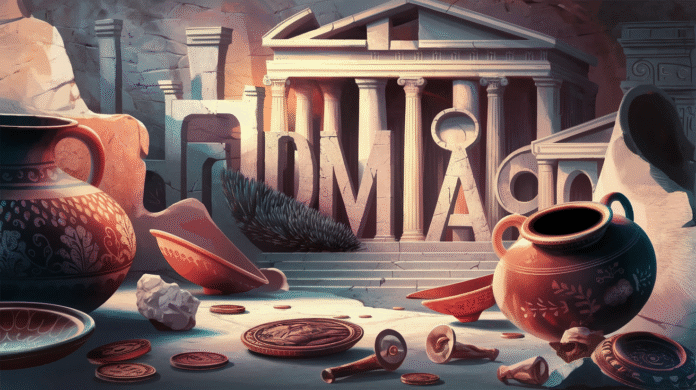The exploration of the word “Roma” and the myriad of hypotheses surrounding the origins of this legendary city’s name is a fascinating social phenomenon.
Diving into the etymology of “Roma”, we stumble upon a rich tapestry of theories, each offering a unique perspective on the origins of this legendary city’s name. Some suggest it was derived from Romulus, the mythical founder and first king of Rome. Others propose that it’s rooted in the ancient Greek word “rhome,” meaning strength or vigor. This exploration is not merely an academic exercise but a journey into the heart of our cultural heritage, revealing insights into how societies perceive and construct their identities.
The importance of this pursuit extends beyond mere curiosity. It’s a testament to the enduring allure of Rome, a city that has captivated the imagination of generations with its rich history and cultural significance. The quest to decipher its name’s origins is a reflection of our collective fascination with the past and our desire to connect with it. It also underscores the role of language in shaping our understanding of society, revealing how words carry the weight of history and cultural context.
Unraveling the Mystery: An Analysis of the “Roma” Phenomenon
The allure of the “Roma” phenomenon lies in its societal issues. It’s a reflection of our collective fascination with history and our desire to understand the past. The main actors in this exploration are historians, linguists, and cultural enthusiasts, each bringing their unique perspectives to the table. Some propose the name “Roma” is rooted in mythology, while others argue it derives from ancient languages. This diversity of views paints a rich, multi-dimensional picture of the phenomenon.
The data illuminating the “Roma” phenomenon is equally fascinating. Some ancient texts suggest the name “Roma” was derived from the city’s mythical founder, Romulus. Other sources propose it originated from an ancient Greek word. These varying theories underscore the complexity of the phenomenon and the challenges involved in deciphering historical mysteries.
The Social Impact: Changes and Consequences of the “Roma” Exploration
The exploration of the “Roma” phenomenon has led to concrete changes in how we understand the city’s history and cultural heritage. It’s sparked debates and discussions, enriching our collective understanding of the past. Various groups, including historians, linguists, and the general public, have been affected by these revelations, each interpreting the findings in their unique way.
The expected evolutions of this exploration are equally intriguing. As more data emerges and new perspectives are offered, our understanding of the “Roma” phenomenon will continue to evolve. It’s a dynamic, ongoing journey that promises to yield more insights in the future.
Looking Ahead: Societal Evolution and Future Perspectives on “Roma”
The exploration of the “Roma” phenomenon has marked important social milestones. It’s not just about deciphering the origins of a city’s name but understanding our cultural heritage and how it shapes our society. The phenomenon has also sparked citizen engagement, encouraging individuals to delve into history and engage with the past. These actions reflect a growing interest in cultural heritage and a desire to connect with our roots.
As we reflect on the future of the “Roma” exploration, it’s clear that the journey is far from over. New theories will emerge, new data will be unearthed, and our understanding of the phenomenon will continue to evolve. This exploration is more than an academic pursuit; it’s a testament to our enduring fascination with the past and our collective desire to understand our cultural heritage. As we look ahead, the “Roma” phenomenon promises to continue captivating our imagination, enriching our understanding of society, and deepening our connection with the past.


